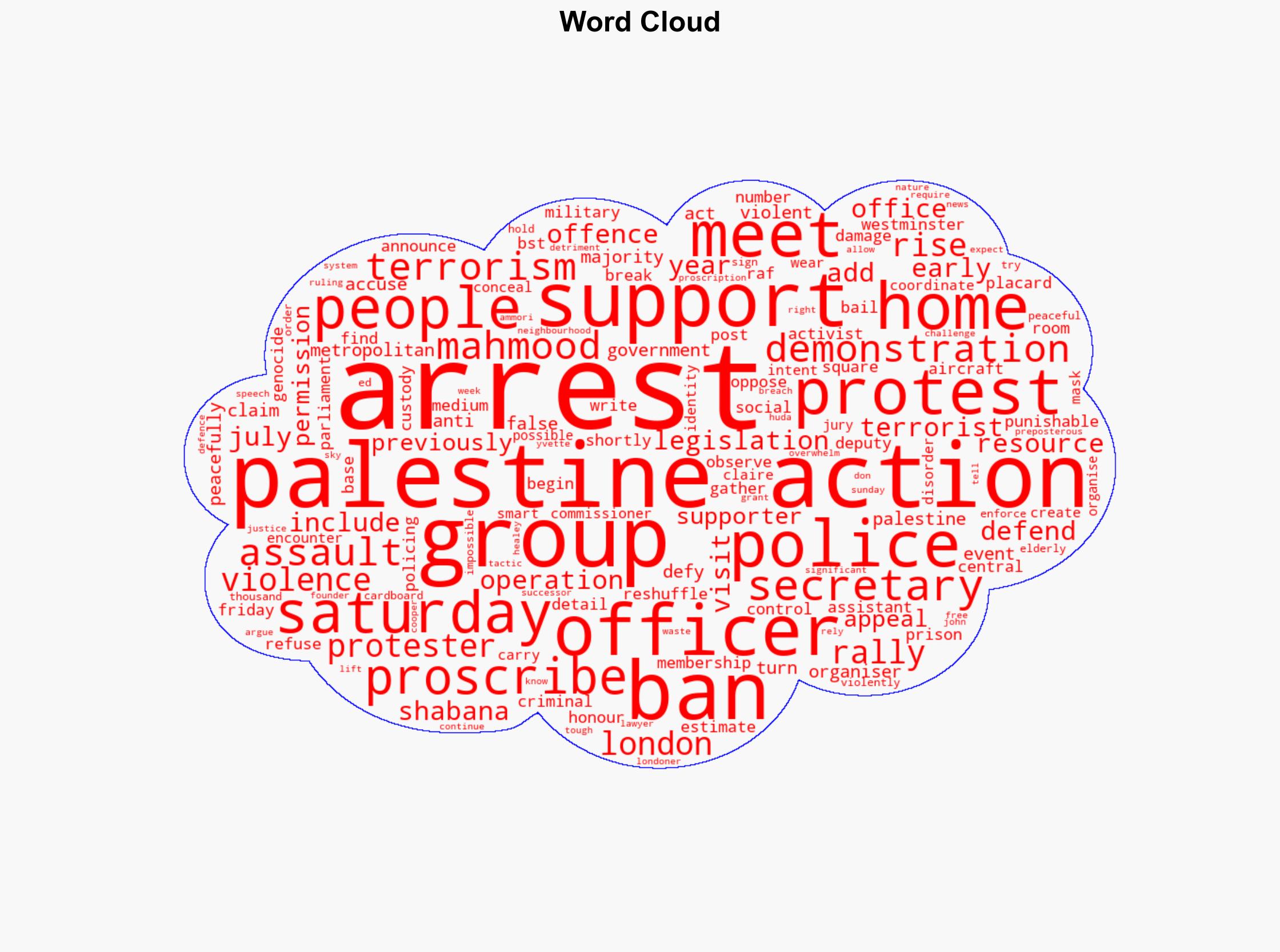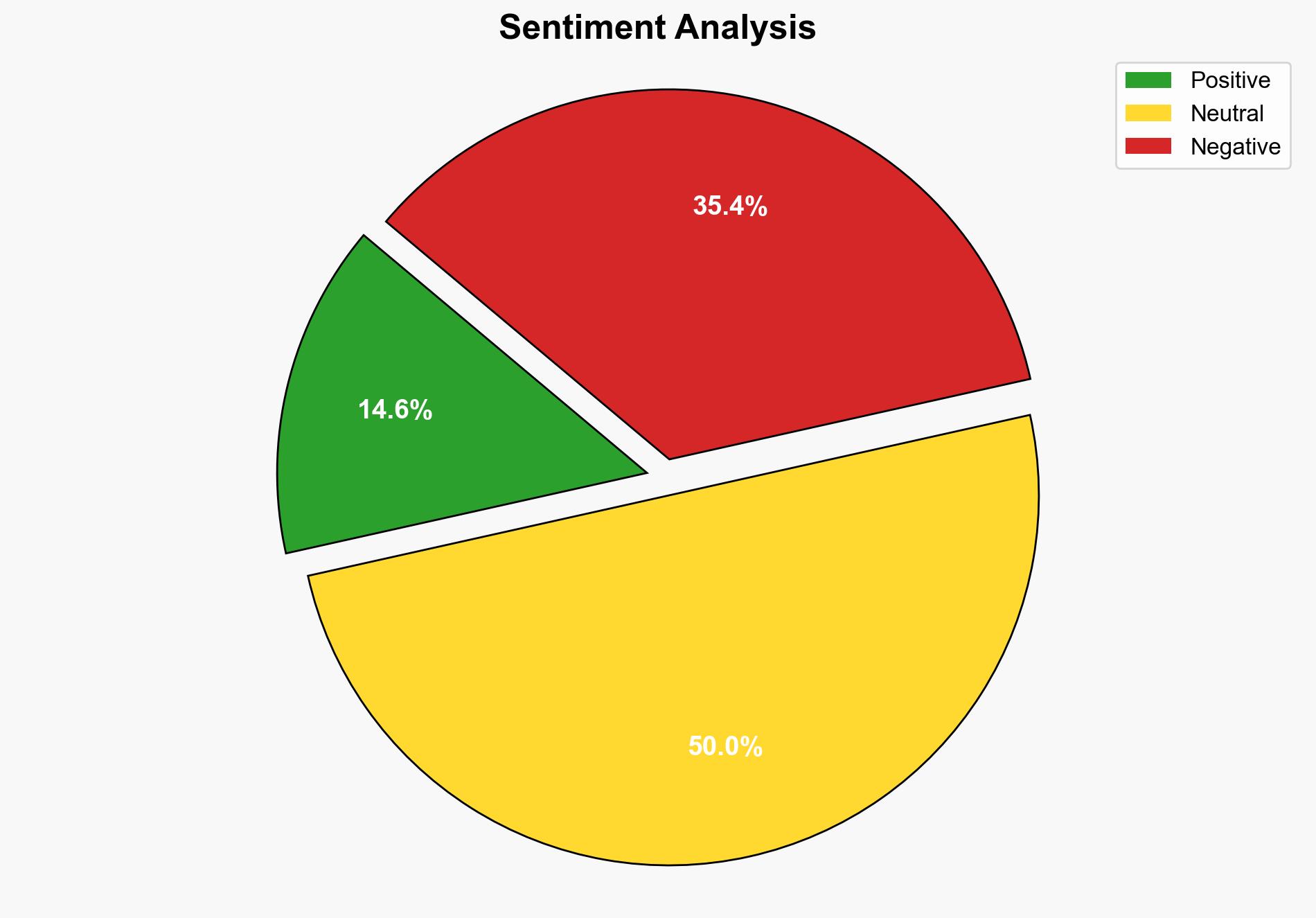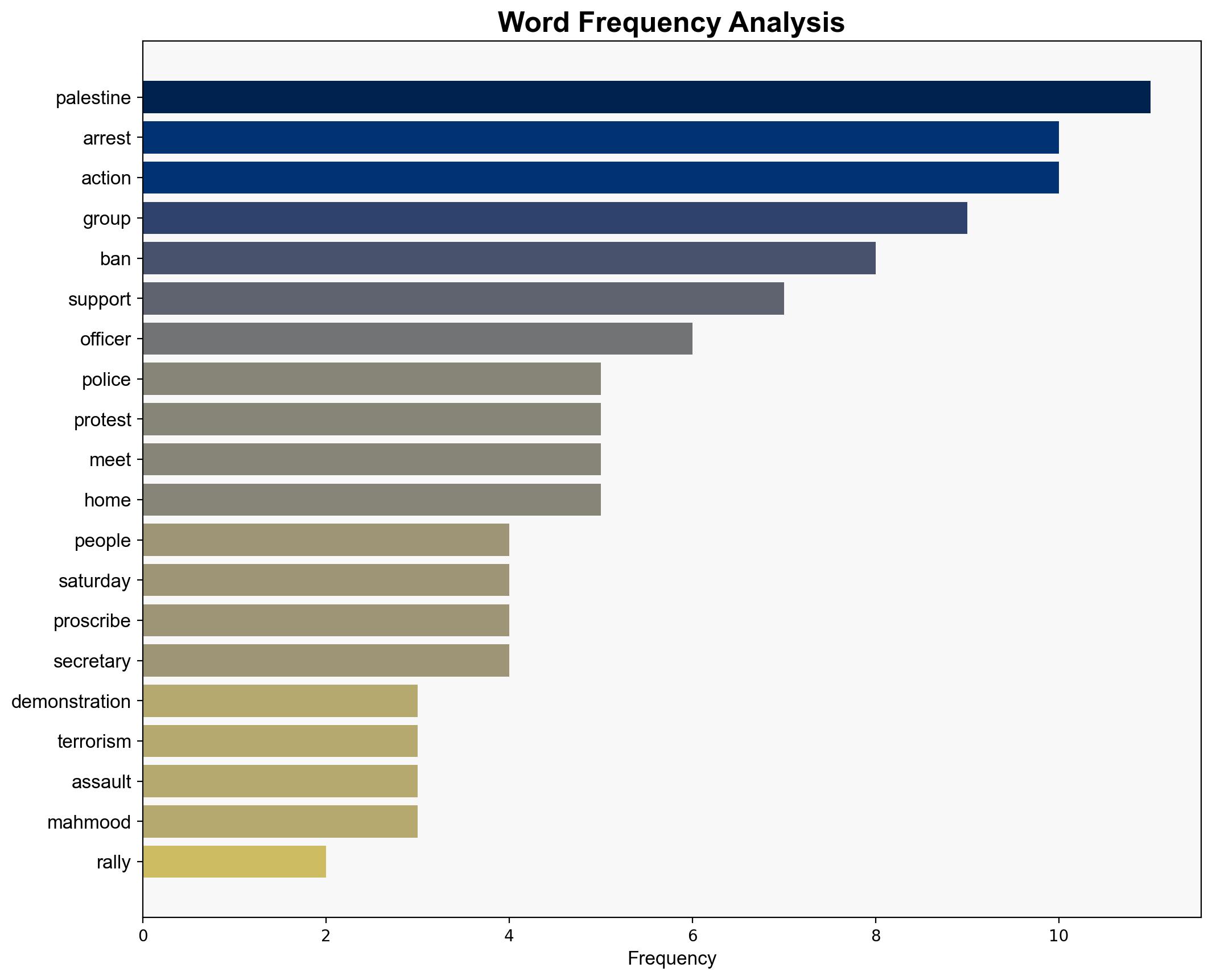Arrests at pro-Palestine Action protest rise to 890 – BBC News
Published on: 2025-09-07
Intelligence Report: Arrests at pro-Palestine Action protest rise to 890 – BBC News
1. BLUF (Bottom Line Up Front)
The most supported hypothesis suggests that the increase in arrests at the pro-Palestine Action protest is primarily due to the enforcement of the recent proscription of the group under anti-terrorism legislation. This enforcement is seen as a strategic move to deter future protests and maintain public order. Confidence level: Moderate. Recommended action: Monitor the legal proceedings and public response to assess the effectiveness and potential backlash of the proscription.
2. Competing Hypotheses
1. **Hypothesis A**: The arrests are a direct result of the enforcement of the proscription of Palestine Action under anti-terrorism laws, aimed at preventing further protests and maintaining public order.
2. **Hypothesis B**: The arrests are primarily due to the protest turning violent, with the authorities responding to immediate threats to public safety rather than the proscription itself.
Using ACH 2.0, Hypothesis A is better supported by the data, as the majority of arrests were linked to support for the proscribed group, and there is a strategic emphasis on enforcing the ban. Hypothesis B is less supported, as the report indicates peaceful protest claims and suggests that violence was not the primary trigger for arrests.
3. Key Assumptions and Red Flags
– **Assumptions**: It is assumed that the proscription of Palestine Action is legally justified and that the enforcement will deter future protests.
– **Red Flags**: The claim of peaceful protests contradicts reports of violence, indicating possible bias or misinformation. The high number of arrests may suggest overreach or misinterpretation of the law.
– **Blind Spots**: Lack of detailed information on the nature of violence and the specific legal basis for each arrest.
4. Implications and Strategic Risks
The enforcement of the proscription could lead to increased tensions and radicalization among supporters, potentially escalating into more organized and covert activities. There is a risk of international criticism and human rights concerns, which could affect diplomatic relations. Domestically, the perception of over-policing could erode public trust in law enforcement.
5. Recommendations and Outlook
- Monitor the legal outcomes of the arrests to evaluate the effectiveness of the proscription.
- Engage in dialogue with community leaders to address grievances and prevent radicalization.
- Scenario Projections:
- Best: Successful legal enforcement deters future protests without significant backlash.
- Worst: Increased radicalization and international condemnation lead to heightened tensions.
- Most Likely: Continued protests with sporadic enforcement challenges and legal disputes.
6. Key Individuals and Entities
– Shabana Mahmood: Home Secretary, supporting the enforcement of the proscription.
– Huda Ammori: Founder of Palestine Action, involved in legal appeals against the ban.
– Claire Smart: Deputy Assistant Commissioner, involved in coordinating the police operation.
7. Thematic Tags
national security threats, counter-terrorism, regional focus, public order, civil liberties




